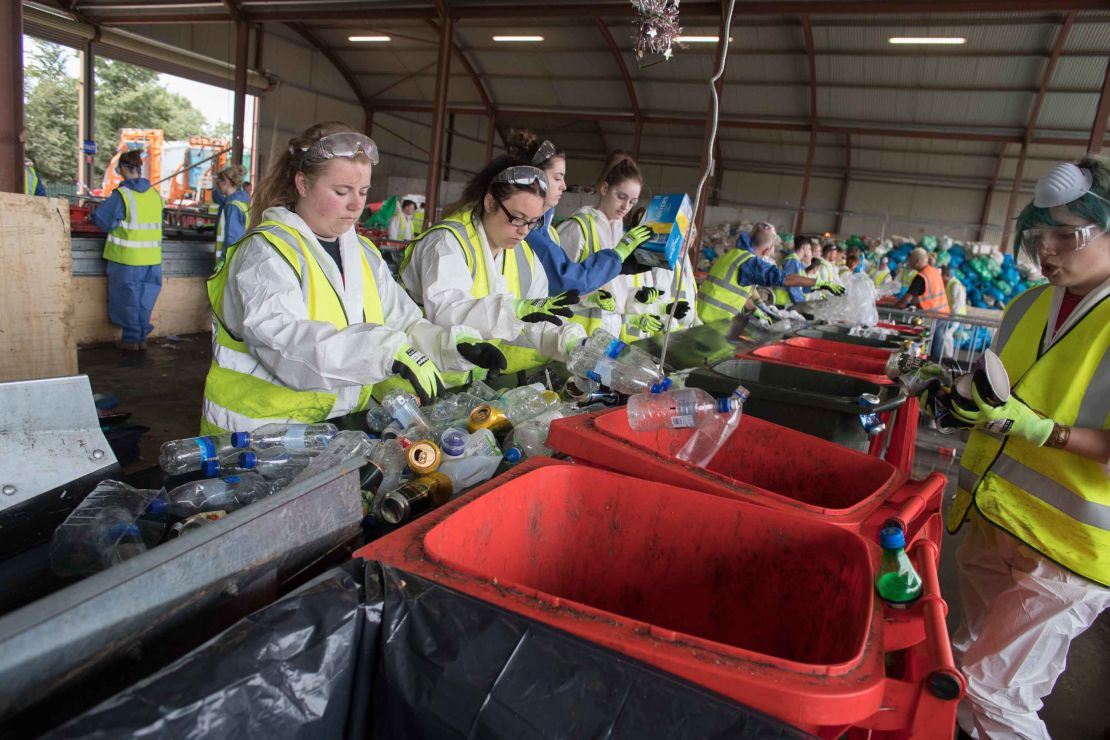England’s Glastonbury music festival, which welcomes on average 135,000 revelers over its five days, has become almost as famous for its sea of mud and piles of trash as for its top-tier artists.
Now the festival, whose most recent headline acts included Radiohead, Foo Fighters and Ed Sheeran, is banning single-use plastic bottles from this year’s event, set to take place in June.
The announcement, which comes only a few months after the European Union approved a ban on some single-use plastics, will prohibit the sale of non-reusable plastic bottles and bar them from the festival’s backstage, production, catering and dressing room areas.
Emily Eavis, co-organizer of the festival and daughter of its founder, Michael Eavis, said the fight against global plastic consumption was “now or never.”

“It’s paramount for our planet that we all reduce our plastic consumption, and I’m thrilled that, together, we’ll be able to prevent over a million single-use plastic bottles from being used at this year’s festival,” she said in a statement. “I really hope that everyone – from ticket-holder to headliner – will leave Worthy Farm this year knowing that even small, everyday changes can make a real difference.”
Greenpeace, the environmental charity that partners with the festival, estimates that up to 12.7 million tonnes of plastic end up in the world’s oceans each year. The festival also said more than one million plastic bottles were sold at its most recent event, Glastonbury 2017.
Libby Peake, senior policy adviser at environmental think tank Green Alliance, told CNN that festivals such as Glastonbury have become “symbolic of a throwaway lifestyle.” She nevertheless described the ban as a “positive step” and said it was “great the organizers have recognized the need for change.”

Louise Edge, head of Greenpeace UK’s ocean plastics campaign, said it was “fantastic” that Glastonbury Festival had taken “such a bold step to cut their plastic footprint.”
“Making water stations available is a key part of helping people switch to using a flask or reusable bottle, and we hope that other big events follow suit, as well as big businesses and government departments,” she told CNN.
A spokesperson for Friends of the Earth, a charity dedicated to protecting the natural world, also welcomed the move, but warned that there is “much more to be done.”
“We’ve seen other festivals giving plastic-free the headliner status it deserves, so we’d urge Glastonbury to carry on along the path to plastic-free bliss,” the spokesperson told CNN in a statement. “It’s time for all festivals to think about things such as food containers, cutlery and encouraging festival goers to ditch the plastic tat when thinking about fancy dress. It’s also important that festival kit, such as tents, is built to last rather than to be abandoned in a field after one use.”

